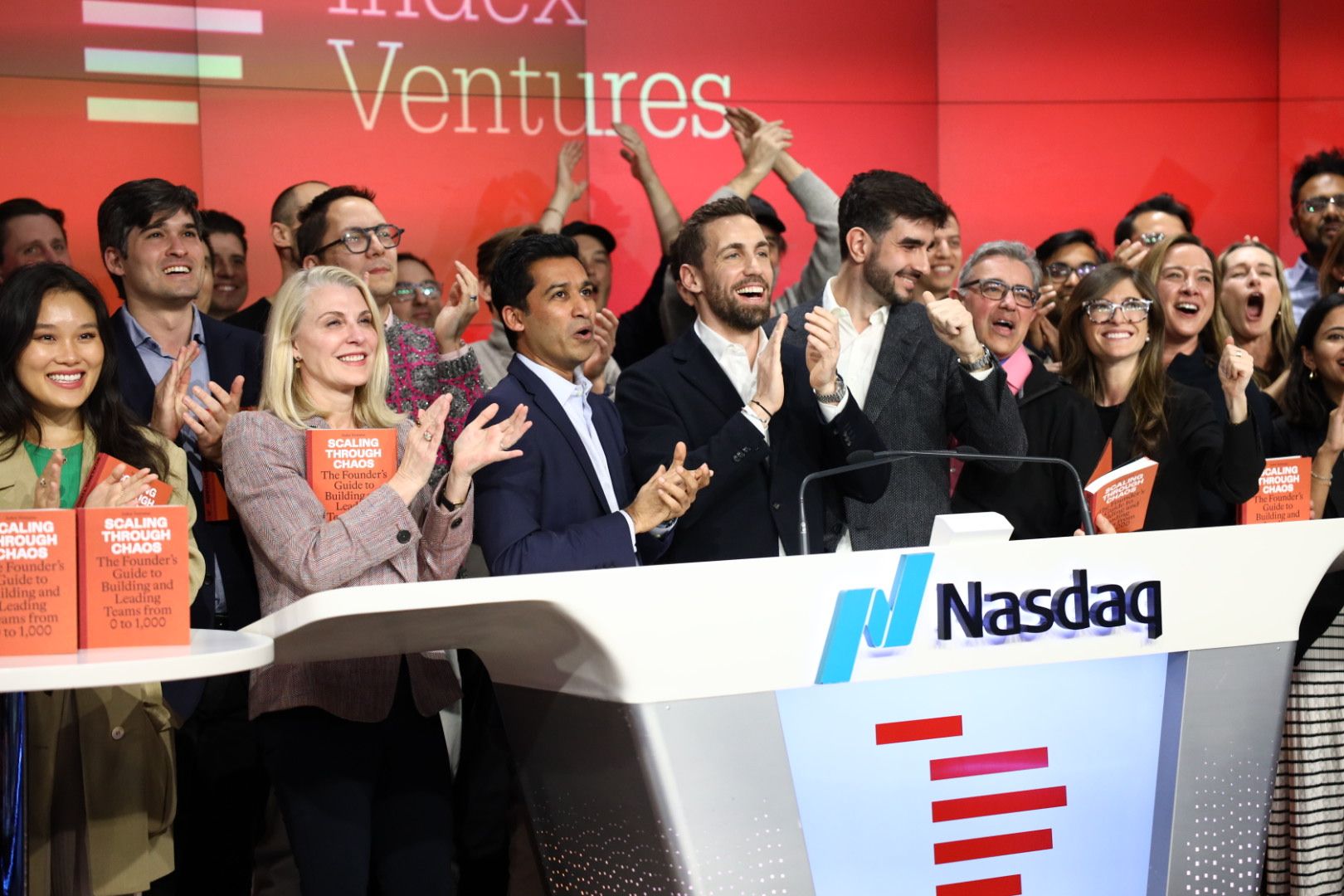Don’t cook, JUST EAT


JUST EAT’s executive team on making marketing count
As marketing messages go, JUST EAT’s call to inaction has proved impressively potent.
The London-based online takeaway delivery service will ring up 700 million pounds worth of orders globally this year. It is the most visited takeaway food website in Britain by a wide margin (41% in August, compared to 24% for runner-up Dominos, according to Experian Hitwise) and the leading player in 12 of the 13 markets in which it operates.
Recently identified as one of Europe’s “best-in-class” technology companies by UK digital business ambassador Joanna Shields and recognised with the Sunday Times’ Tech Track Brand of Year award, JUST EAT is enjoying the kind of buzz that heightens speculation about what’s around the corner.
So how does a company that launched in Denmark in 2001, become the toast of the European tech scene more than a decade on?
“Marketing is critical,” says CEO David Buttress, who left a job at Coca-Cola to become the company’s first UK hire in late 2005. He says the first priority in any market is to build recognition of the online brand in the offline world.
“We make sure all local restaurants are fully branded, so you’ll see the scooters bombing around your neighbourhood with the JUST EAT guy and you’ll see our stickers in our restaurant partners’ windows. So the local knowledge starts to build in the cities and towns where we’re operating,” he explains.
Ground-breaking marketing
Even as the global economy dipped into recession, JUST EAT managed to grow. By 2009, the company was serving a million meals per month throughout Europe.
Those numbers impressed Index Ventures, which led a £10.5 million Series A investment that July.
For Buttress, Index’s investment went far beyond a cash infusion.
“Those were the guys that gave us a chance,” he says. “If you look back through our growth charts you can see it was absolutely fundamental, because our business grew exponentially following the Index round, because of course we were able to deploy that capital really well.”
The company tripled the size of its sales team, expanded into new markets and launched ground-breaking marketing campaigns thanks in large part to the addition of Mat Braddy, a savvy digital marketer with creative flair.
At the time, Braddy was the marketing director at TopTable, an upscale restaurant booking service. He’d previously held senior marketing positions at The Financial Times and a video games website. Though he “didn’t want to do restaurants again,” Index Partners Ben Holmes and Saul Klein convinced Braddy that he should meet JUST EAT’s executive team.
“I thought I’d have a little meeting and see how it went,” he recalls. “But before I knew it, I was running a TV campaign -- so I signed a contract, but never officially got offered the job.”
Heartland audience
Braddy knew that in order to take on well-heeled incumbent takeaway/home delivery brands, such as Domino’s Pizza, the company would need to take risks in order to get people’s attention.
“Marketing shouldn’t be safe,” he says. “There’s no point hanging around the mushy middle,” says Braddy. “If you look at Domino’s or other pizza brands or other delivery brands, they’ll have a pizza on a plate, they cut it, lift it up and a piece of cheese melts….hmmm, makes you hungry. But that could be any pizza advert.”
It was, therefore, essential that JUST EAT’s campaigns stood out. Braddy’s first task was to oversee the company’s TV advertising debut.
Instead of positioning JUST EAT as a food service, Braddy thought of it more as an entertainment brand. He worked with an ad agency to come up with two animated characters called Belly and Brain, who disagreed on everything except for ordering “takeaway, the smart way.”
“They were really fun, they appealed to our heartland audience which at the time was young students and young professionals,” says Buttress, who was then running the UK business.
“They did a really great job of saying ‘There’s this category called online takeaway and there’s a company called JUST EAT and these are the benefits of using it’. So they helped us educate the UK, and some of our other markets, that we exist and this category now exists, so give it a try.”
As part of taking JUST EAT into a new direction, Braddy had all photos of food removed from the website.
“We’re not responsible for the food,” he explains. “We are responsible for getting you the food delivered. So, we’ve never pretended to be anything we’re not and that’s what holds us in good stead with our customers.”
As the company grew, it was clear that social media would be an increasingly important part of the marketing mix; Belly and Brain were side-lined.
“They weren’t a marketing strategy,” says Braddy. “They were an advert. If you look around at brands that have done well, more recently, you have to have a narrative and a story. It’s way beyond advertising.”
The leadership team spent some time defining its mission and came up with “empowering consumers to love their takeaway experience.” An admirable motivation, but hardly a marketing mantra.
Mr. Mozzarella
Inspired by Dove’s Campaign for Real Beauty -- which ignited debate about the digital manipulation of images in fashion magazines -- the marketing team came up with an idea sure to get people talking: JUST EAT would launch a global campaign to ban cooking.
The ‘Don’t Cook, JUST EAT’ campaign would encompass TV and social media, following a renegade band of fictional takeaway chefs as they admonished people who had the audacity to cook for themselves.
The campaign was sophisticated as it was wacky. In 2012, JUST EAT formed the ‘Don’t Cook’ party and put a character named Mr. Mozzarella on the ballot in the Corby by-election.Even the BBC, which doesn’t run ads, reported on the candidate’s message: "Me and my fellow takeaway chefs of Great Britain is angry [sic]. We is slavin' away in hot kitchens up and down the country ready to deliver your dinner, and yet many many people are trying to cook for themselves. Why you want to waste your time cooking these '15-minute meals' which actually take two hours, and tastes no good, when you could be sitting down, 'avin' a chat, or watching the telly?"
Then, early in 2013, the company staged a televised kidnapping of the celebrity chef Antony Worrall Thompson and launched a video game inviting internet users to virtually wallop him with a squid, dover sole, mackerel, bream or sprat.
“It was all about two screen viewing,” explains Braddy. “The advert was on TV and it had hashtags all the way through it. That gets social conversations going. Viewers could then come to the site throughout the week and keep engaged with the campaign.”
Kidnapping narrative
Braddy admits the kidnapping narrative “was a mini scandal waiting to happen”, but the company’s brand tracking and sales figures showed it was a tremendous success.
“The public is ready to pop the balloon of these bloated celebrity chef egos, so it was good timing,” says Braddy.
However, there are many more facets to JUST EAT’s marketing than stickers and mischievous stunts. The company has earned a reputation for excellent service, thanks to a dedicated call centre that responds to 95 percent of all tweets – most within 10 minutes.
Buttress says offline promotion remains an important sales driver, accounting for as much as a third of business even in mature markets.
But JUST EAT’s CMO, Braddy, says he finds it difficult to assess the relative ROI of various forms of marketing.
“It’s a zigzaggy media world,” he says. “You’re on your iPhone and you might see our activity on Facebook. You might also be walking past a sticker and then you come and order tonight by clicking on the pay per click link. How do I give ROI to any of the three things there? Should I give ROI to the social media team? To the sticker team?”
Still, with a bigger online following than Domino’s, it’s hard to argue with the results.
“Marketing is storytelling,” says Braddy. “It’s a mixture of art and science. But the art is still more important than the science.”
Posted on 18 Mar 2014
Published — March 18, 2014

